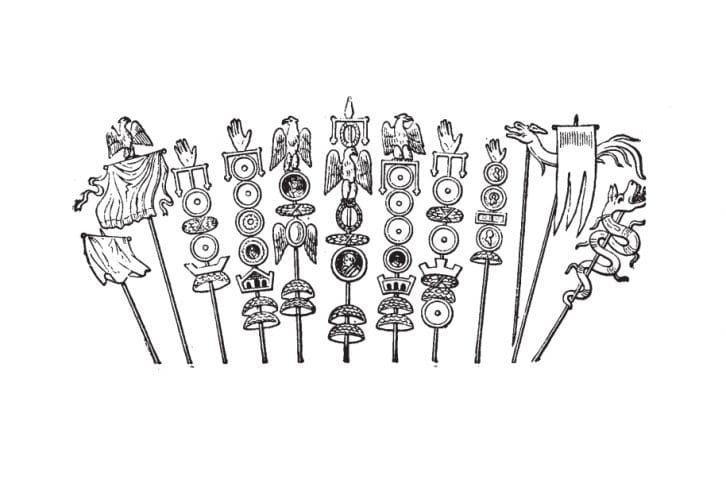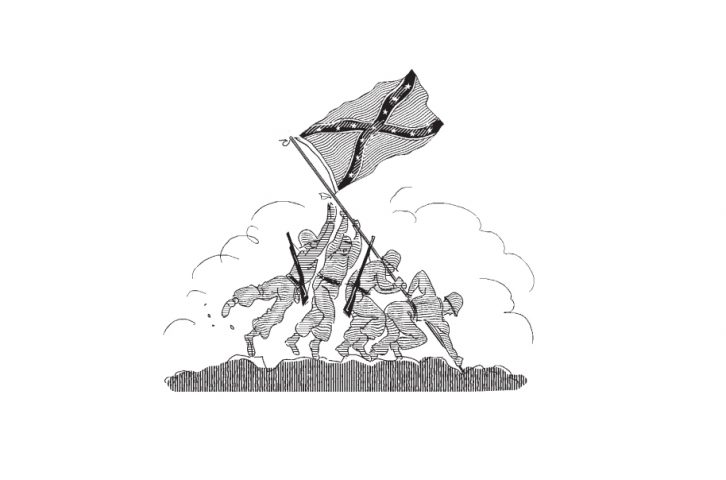Books Reviewed
A review of The Afghan Campaign: A novel
Alexander the Great ran one of the shrewdest media operations in history. His entourage included men whose job it was to chronicle his exploits, both for dissemination among his contemporaries and for posterity. While their works have not survived the passage of time, their influence has. Alexander is one of the select figures from classical antiquity who continues to excite the popular imagination, not just in the West but in Central Asia and India as well.
Spin control thus has an ancient pedigree. In antiquity as in the present, broadcasting a preferred interpretation of a leader's prowess involved the suppression of inconvenient perspectives, whether dissents from Alexander's strategic vision or the enormous suffering and sacrifice exacted by that vision's implementation. Each perspective—the strategic vision and the human toll—sheds light on Alexander's boldest gamble, the invasion of Afghanistan, which is the subject of Steven Pressfield's gripping fictional recreation in The Afghan Campaign.
Alexander's strategic rationale for conquering Persia had been clear, defensible, and popular: by leading a Greek army to victory in the heart of Persia, he would avenge the Persian defeat of the Greeks on Greek soil over a century earlier. Conquering Afghanistan, however, was another matter entirely. The rationale was never clearly or persuasively articulated, and whatever might have motivated him—his own further glorification, ambition to conquer any territory not yet subject to his rule, or insatiable curiosity about the peoples and places "at the edges of the world"—he failed to rally his increasingly polyglot troops to fight with the unwavering dedication they had displayed during the Persian campaign.
Moreover, those troops faced in Afghanistan conditions that would test invading armies for the next two millennia. The harsh mountainous terrain and brutal weather were only part of the challenge. The Afghans themselves were no less formidable than their environment. Riven by internal divisions and tribal loyalties, they nonetheless proved more than capable of rallying to resist the designs of a foreign invader. As a result, Alexander spent more time conquering Afghanistan than he did Persia, and with less to show for it: not only did Afghanistan offer no comparable symbolic and strategic victory, but constant revolts undermined whatever glory he could claim for his defeat of Spitamenes, his primary Afghan foe.
* * *
Pressfield's The Afghan Campaign is a vivid, compelling tale about the challenges of the war, as recounted by Matthias, a young Macedonian infantryman in Alexander's army. While Alexander himself makes important appearances and remains the charismatic leader for whom Matthias and his fellow soldiers are willing to die, the story focuses on the daily struggles of the footsoldier. Pressfield's training and skill as a screenwriter are evident in many superbly constructed, briskly paced, and dramatically engaging scenes. Matthias and his fellow soldiers never doubt Alexander's brilliance as a commander, despite his absence from much of the day-to-day fighting. The strategic purpose for which Alexander is fighting matters less to them than their service to Alexander himself. At the same time, Matthias had initially joined Alexander's army to follow a family tradition, to prove himself a man, and to see the world (while profiting personally in the process, he hopes). In this sense, Alexander's army is a vehicle for realizing personal ambitions. Alexander's leadership is thus both crucial to Matthias's story and ultimately of secondary importance to it.
While Matthias's direct contact with Alexander is infrequent, his encounters with the Afghan people, on and off the battlefield, are routine. These encounters raise the important question of how well we ever understand the enemy. Matthias would like to believe that he comes to understand the enemy quite well. Certainly, he comes to respect the tenacity of the foe he faces in battle. He forms a rough friendship with an Afghan porter, Ash, whose harsh treatment of women initially confounds and disturbs Matthias. More significantly, he falls in love with and marries an Afghan woman, Shinar. In doing so he both fulfills Alexander's policy of encouraging marriage between his troops and local women and incurs the wrath of Shinar's brothers, who seek to avenge the dishonor the marriage has brought on their family. But Matthias's exposure to Afghan life only deepens his perplexity, incomprehension, and sense of otherness. The more he learns, the more he realizes how little he knows, beyond the sometimes painful, sometimes happy, realization that he will always remain an alien in an alien land.
* * *
Such hard-won self-knowledge is one aspect of the central question that animates this story: how war tests and in the process transforms the individual. The tests are obvious: exhaustion, illness, hunger, suffering, death. The transformations are subtle, often unwelcome. Surviving extreme conditions against seemingly impossible odds can become a point of pride, particularly for a young man eager to assert his manhood to fellow soldiers. Finding love in such a setting can be even more unexpected than survival itself. At the same time, relentless exposure to violence numbs and alienates: the distance between witnessing the brutality of others and committing acts of brutality oneself, Matthias learns, often proves disturbingly short. And the decision he makes at the end of the novel raises perhaps the most profound question of all: after all that you have experienced, can you ever really go home?
His story, then, is an everyman's story—not only about Afghanistan in the early 320s B.C., but about men wherever they wage war. Unfortunately, The Afghan Campaign is least successful on this level. There are, for example, some jarring archaisms of dialogue and prose. Matthias and his "mates" get "varnished" on cheap booze, condemn "outrages" upon women, and begin conversations with "howsoever." They sound neither like 4th-century Macedonians nor 21st-century grunts. If anything, they have a Victorian cast that can make them sound like figures in a boy's adventure novel. However charming, such language confers upon them an air of innocence utterly out of keeping with the novel's insistence that war imposes a harrowing loss of innocence.
And yet it is this very possibility of retaining one's inner innocence while surrounded by horror that may explain the enormous popularity of Pressfield's work among the rank-and-file soldiers of the American military. Matthias holds out to the reader the promise that every soldier wants to believe: not only will you survive and grow in the crucible of the battlefield, you will emerge from it with your peacetime decency and goodness intact. No general, of course, has ever been able to deliver completely on such a promise, and no amount of spin control has ever successfully concealed the failure to do so—not even Alexander's.



